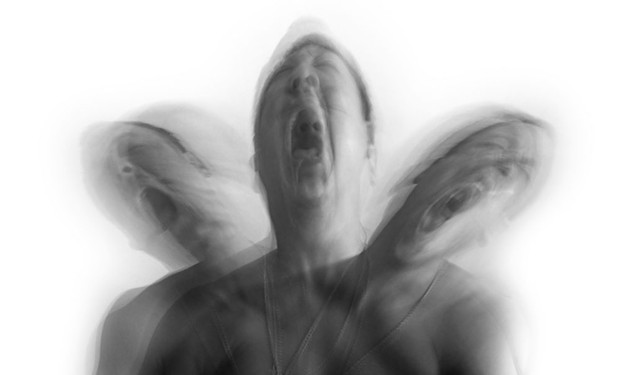
- Shutterstock
Working in Old Town Eureka, we see California's mental health crisis play out daily: the unshaven man draped in a wet blanket, standing on a street corner talking to himself; the woman with disheveled hair pulling a rolling suitcase and screaming a guttural cry so blood-curdling you'd swear she was being stabbed to death; the man who sits in Clarke Plaza, smoking cigarettes and warning that the CIA is keeping tabs on him.
As this week's cover story attests, this is a statewide issue, though it's visible in just about every town and every neighborhood in Humboldt County. The web of causes is complex and tangled, but it's clear California is in the midst of a mental health crisis, one that intertwines with a drug epidemic and pervasive homelessness. The three issues are often interwoven, their root causes difficult to discern from symptoms.
What this week's cover story ("Breakdown," page 11) and local news piece ("'Heartbreaking,'" page 8) make clear is that the criminal justice system is all too often where these issues come to a head. And that's generally the absolute wrong place, as it means a person's mental health and substance abuse have reached a crisis point. Often, they have victimized another member of our community.
We would all benefit greatly from more robust early intervention at every level. That means more counselors in local schools, ready to work with children with emotional and mental health challenges and keep them engaged in the education system. It means more in-patient treatment beds and options for people with severe mental illness. (Sempervirens is only a stabilization unit, meant to either hand people off to outpatient care or transfer them to a long-term treatment facility, where beds are scarce.) It would mean better drug treatment options, including in-patient care, and a better crisis intervention model — someone besides an armed officer that families and community members could call when a loved one is spiraling into crisis.
But these things cost money. Lots of it. Until we as a local community and a state prioritize creating that robust system, we won't see a substantive change. We might sand off some of the rough edges — as local law enforcement and the public defender's office are trying to do with additional crisis intervention training and the incorporation of counselors into regular operations — but our streets, greenbelts and jail will remain filled with the mentally ill.
We believe there's a moral imperative to care for the ill among us. There is simply no way we can look at that man with the wet blanket or the woman with the rolling suitcase and not see a tortured existence. (And before you go there, if someone chooses a life in Humboldt County's wind and rain, living off whatever they can scrounge, we believe underlying mental health issues guide that choice. After all, most of us prioritize stability, comfort and safety.)
But if you shrug at people with mental illness, thinking they're not your problem, you're also wrong. Mental health and substance abuse have come to dominate our criminal justice system. Not only does that create a trail of victims that could one day lead to someone you love but it also saps resources. Make no mistake, the current model is expensive. And its ripple effects reach the rest of the community: spent syringes littered around town, trash in our green belts, blight in our business districts and officers who are increasingly asked to do more and put in greater jeopardy.
So we urge you to contact your council members and supervisors to insist that this become a priority. Write to state representatives — Assemblymember Jim Wood and Sen. Mike McGuire — and demand they find solutions at the state level, where California has a budget surplus of more than $20 billion. And call our federal elected officals — Representative Jared Huffman and senators Kamala Harris and Dianne Feinstein. A place to start might be demanding a health care system that provides for all and prioritizes mental health care. And work locally to find solutions, even with a single person in your orbit. One thing we know for certain is we can't make a difference if we don't try. Perhaps most importantly, it may mean being willing to pay fees and higher taxes for a healthier community.
Or, of course, you can do nothing. You can keep minding your own, grumbling online about "tweekers" and "crazies." You can refuse to pay one more penny to help those in need. You can dehumanize your neighbors and blame them for the plight you see in your community, wondering why someone doesn't just force them out of town to become someone else's "problem."
This option, however, is the equivalent of standing on an Old Town street corner, screaming at demons that don't exist and expecting it to change the world.
Jennifer Fumiko Cahill is the arts and features editor at the Journal. Reach her at 442-1400, extension 320, or [email protected]. Follow her on Twitter @JFumikoCahill.
Thadeus Greenson is the Journal's news editor. Reach him at 442-1400, extension 321, or [email protected]. Follow him on Twitter @thadeusgreenson.


Comments
Showing 1-1 of 1